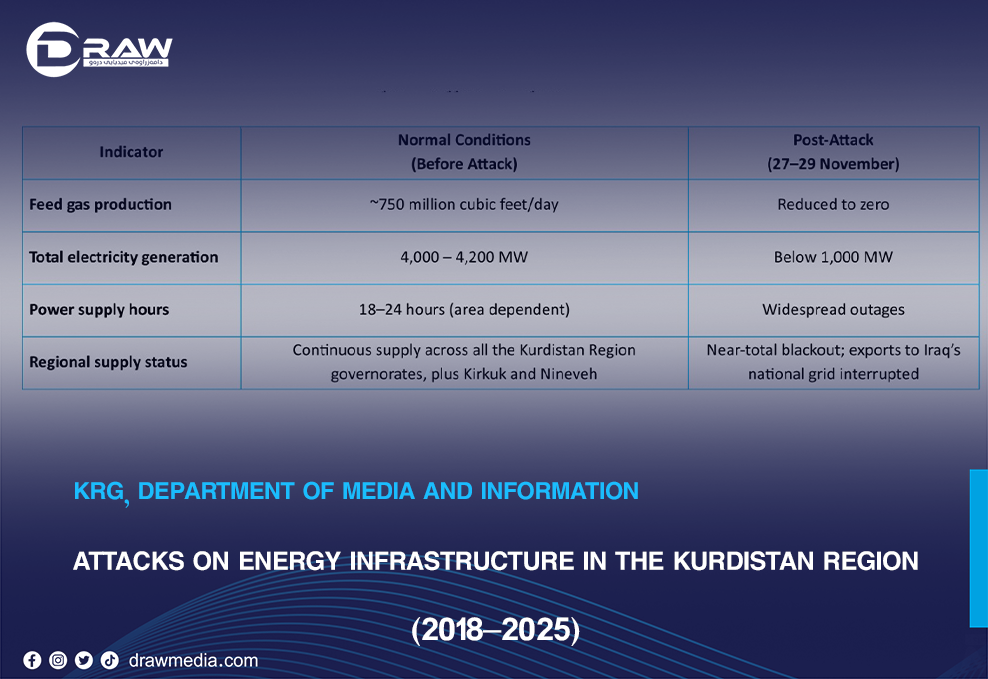Shock survey reflects frustration with ruling parties among Iraqi Kurds
.jpg)
2023-02-20 19:21:34
Amwaj Media
The story: Rising economic and political dissatisfaction in Iraqi Kurdistan is bolstering an apparent belief that devolved rule under the Kurdistan Democratic Party (KDP) and the Patriotic Union of Kurdistan (PUK) only benefits the ruling elite, rather than the broader population.
While this dynamic may not pose an immediate threat to the political dominance of either party, it could undermine the legitimacy and effectiveness of their rule. It is also dangerous for the Kurdistan Regional Government (KRG) in the context of its ongoing disputes with the federal government over the budget, oil, and the disputed areas.
The coverage: A new opinion poll conducted by Erbil-based research firm Sheekar Research shows that just over half of respondents believe they’d be better off if the KRG was dissolved and central authority from Baghdad reasserted.
• On its face, the seemingly prevalent sentiment is surprising given the decades-long struggle for Kurdish autonomy in Iraq and the horrors under the previous Baathist regime. It would also be a profound shift from just six years ago, when 92.73% of participants in the Kurdistan region’s 2017 independence referendum cast ballots in favor of seceding from Iraq.
• The survey polled 1,000 people between Jan. 27-28 from across Iraqi Kurdistan using a weighted sample to reflect local demographics. It was conducted using online survey app Prsyar, which randomly selects respondents from a database of 80,000 pre-registered, Kurdish-speaking users to fit a desired sample profile.
Respondents were also asked about how they view recent decisions by the federal supreme court against the KRG. Last February, the court ruled that Iraqi Kurdistan’s oil and gas law was unconstitutional, throwing its contracts with international oil companies into legal jeopardy. More recently, the top court on Jan. 25 found that budget transfers arranged between former Iraqi premier Mustafa Al-Kadhimi (2020-22) and KRG Prime Minister Masrour Barzani were illegal.
• A plurality of survey respondents (46%) saw the court’s decisions as “illegal” and “issued against” Iraqi Kurdistan. Yet, most respondents either supported (10%) or felt neutral (42%) about the rulings because they felt the court was primarily punishing the KDP and the PUK.
• The survey also asked about who is to blame for the KRG’s apparent weakness in Baghdad. A fifth of respondents (21%) said the KDP and the PUK were responsible, while a further 47% blamed all Kurdish parties—including the ruling duopoly and opposition groups. One-third of respondents were unsure.
The survey results were published by independent outlet Draw Media and then picked up by social media accounts, sparking fierce discussion online.
• Kurdish nationalists denounced the opinion poll with one KRG official pointing to the result of the 2017 independence referendum as a counterpoint.
The context/analysis: While the sentiments against devolved rule have shocked many observers, they mainly appear to reflect intense popular frustration with the governance of the KDP and the PUK. Such attitudes should therefore be read as a clear call for improved devolved governance, rather than pro-Baghdad sentiment.
• The KDP and the PUK have governed Iraqi Kurdistan since 1992. Though the semi-autonomous zone is generally more developed than much of the rest of Iraq, wealth is concentrated in the hands of a small elite connected with the ruling parties.
• Since 2014, Iraqi Kurdistan has faced significant economic upheaval caused by periods of low oil prices, the war against the Islamic State group (IS), and budget disputes with Baghdad. Austerity measures have involved cuts to public sector salaries, which the KRG occasionally fails to pay on time. Corruption and lack of investment have furthermore inhibited the development of the private sector.
• According to Sheekar Research, its respondents include a high proportion of government workers, reflecting the public sector’s outsized importance in the economy. Concerns about whether the KRG can pay salaries and a view that Baghdad is more reliable in this regard have likely been reflected in the poll results.
Public frustration with the Kurdish ruling parties runs deep, driven by growing economic inequality, poor access to public services, and lack of opportunities to register dissent.
• The KDP and the PUK are increasingly restricting freedom of expression and cracking down on the ability of residents to organize protests.
• Planned elections for the regional parliament last year were scrapped after the KDP and the PUK were unable to agree on a new electoral law. It is unclear whether they will be able to pass legislation in time for the delayed polls to be held in the autumn.
• Iraqi Kurds continue to migrate to Europe at high levels, despite the dangers inherent in that journey.
Of further note, public opinion surveys are rare in Iraqi Kurdistan. Narratives about events are often shaped by elite actors to suit their own purposes and spread by partisan media outlets. As a result, seemingly unvarnished public opinion data can come as a surprise to observers, making it all the more valuable.
The future: Within Iraqi Kurdistan, the political dominance of the KDP and the PUK remains unchallenged, but public opinion appears to become hard set against the duopoly. This trajectory will likely become intensified by continued economic difficulties.
• The seemingly fading support for the status quo could prove fertile ground for new political opposition factions or social movements, including Islamist groups.
• Rising public discontent could also hamper the ruling Kurdish parties’ ability to rally support for the KRG amid a drive by some players in Baghdad to centralize power through court decisions.
Continued squabbling between the KDP and the PUK amid underwhelming governance could additionally impact support for Iraqi Kurdistan by foreign partners, which has been important to its development and economic well-being.




.jpg)


.jpg)

.jpg)